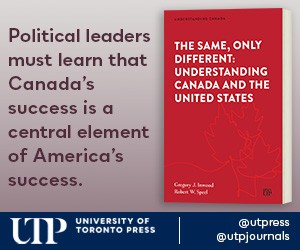If the Supreme Court is “one of the country’s most important governing bodies,” as author Emmett Macfarlane notes, it’s also true Canadians know little about it. The irony is noted. It’s the only court in the country to televise hearings, the only one with a chief justice who grants interviews, the only one to hold media lock-ups where complex cases are explained to the public.
Yet not one of the justices is recognizable in a Walmart parking lot. And the inner workings of the Supreme Court remain a riddle wrapped in a mystery.
“People wonder, are they completely isolated?” as retired justice Jack Major once put it. “Do they even read the newspaper? Do they know what’s going in the ‘real world’?”
Professor Macfarlane of the University of Waterloo opens the door to the secret chamber. “The Supreme Court is one of Canada’s most important – and least understood – governing institutions,” he writes.
Governing From The Bench is intriguing and oddly reassuring. In candid, anonymous interviews the judges emerge as very human. One justice complains law professors are smart alecks who make “terrible” court appointees. Another admits to asking “devil’s advocate” questions to stir up the courtroom. A third confesses to disliking orders: “I think that chief justices would like to think they could have a court marching to the same tune, but it just doesn’t happen.”
Are judges liberal or reactionary? Humbug, reports Macfarlane: “All the justices I interviewed responded to those attempts to label them in ideological terms in dismissive or amused tones.”
Do arguments ever change a judge’s mind? Yes, “10 to 25 percent of the time.”
Does the Court agonize over decisions and their impact on Canadians’ lives? Not really: “Give it your best…and you’re on to something else,” shrugged one justice.
Do they have long conferences on a case? Never. The only meetings attended by all justices can last as little as five minutes, and rarely more than 20.
Does the Court ever bicker? Sometimes, like the judge who described an irritating colleague assigned to draft an opinion: “One in particular said he was going to write for a unanimous Court, and he changed his mind writing. He didn’t tell anybody, and I’m reading the judgment, and I’m thinking ‘this doesn’t make sense, I thought we were going the other way.’ And I called him and he said, ‘Oh, well, I changed my mind as I was writing it.’ And I said, ‘Well, you might have told me, it would have saved me a lot of guessing.’ And he said, ‘Yes, I suppose I should have.’”
Governing From The Bench in rare instances even dissects why justices do what they do. When the Court ruled in 2004 that autistic children in British Columbia had no legal claim to mandatory medicare funding, it was mainly because “the Court’s pretty reluctant to tell the government how they should be spending their money,” one explained.
Professor Macfarlane reveals the Supreme Court as workmanlike, fallible and modest, where most try their best and some get on each other’s nerves. It is comforting to know it.
By Holly Doan
Governing From The Bench: The Supreme Court Of Canada And The Judicial Role by Emmett Macfarlane; UBC Press; 264 pages; ISBN 9780-7748-23500l; $34.95









